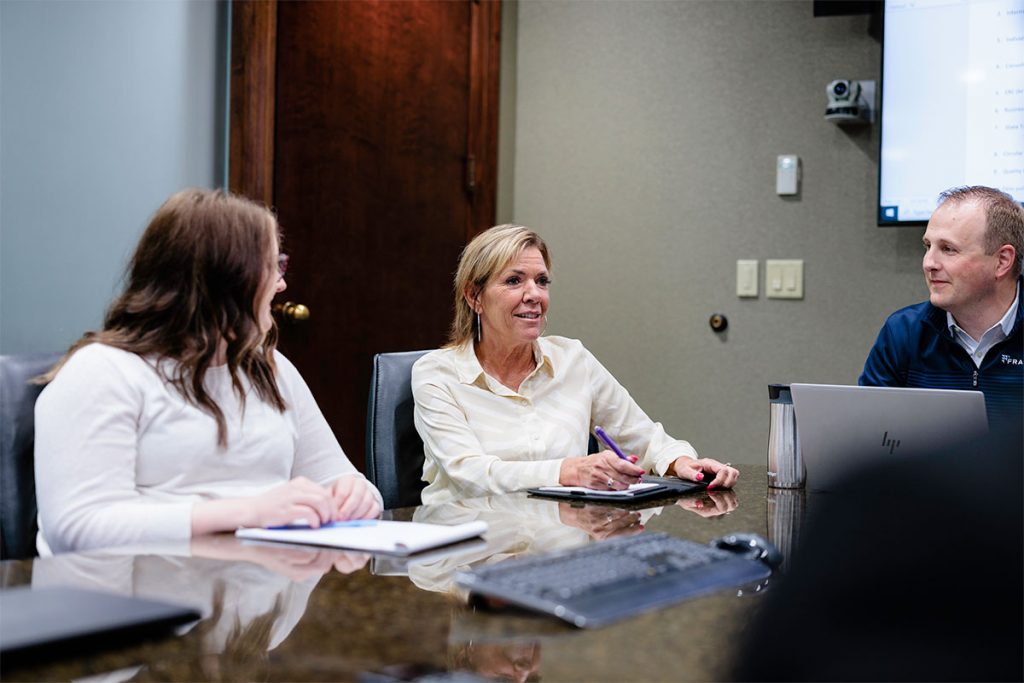Formal, Transparent Processes for Bidding and Requesting Services
Hiring a contractor for a job is rarely a simple process. It often begins with collecting bids from multiple contractors. Once a customer has selected a contractor, they must negotiate a contract for services. The actual job rarely goes exactly according to the contract, so change orders become necessary. Each step of this process presents countless opportunities for fraud from any and all parties.
Formalized processes can help prevent fraud and alleviate other parties’ concerns about potential fraud.
- Customers can implement processes that provide all the information that contractors need to submit comprehensive and accurate bids for projects.
- Contractors can establish standardized procedures for submitting This may include disclosure of any relationships with other contractors in order to prevent bid rigging, or suspicions of bid rigging, which occurs when multiple contractors collude to direct a customer to a particular contractor’s inflated bid.
- Customers can use standard, transparent processes for awarding
Detailed Contract Specifications
The more detailed the contract and its specifications, the fewer opportunities may appear for fraudulent schemes. Customers may require, or contractors may offer, detailed information on the materials and methods they will use to perform the work. Any change orders should follow the same standards and should include provisions that state why they are necessary. The use of any materials other than those specified in the contract should require a change order signed by both parties.
These measures can help the parties to a contract avoid common types of fraud, including the following:
- Change order fraud: A contractor creates unnecessary change orders in order to pad their billing, or they inflate the cost of a change order.
- Substitution of materials: A contractor uses substandard or cheaper materials in place of those specified in the contract, but bills the customer for the higher-quality, more expensive materials.
Disclosure of Relationships and Conflicts of Interest
Kickbacks and collusion are serious problems in the construction business. Contractors may accept payments from subcontractors or vendors in exchange for including them in projects. They may have under-the-table relationships with inspectors that ensure a project will pass inspection regardless of the quality of the work or its compliance with local building codes.
These practices harm both customers and contractors.
Contractors should disclose any preexisting relationships with subcontractors, vendors, inspectors and others that they may retain as part of their services. Customers may require that they approve any subcontractor or vendor in advance. All contracts should include clauses that ban unethical practices like kickbacks and collusion.
Requirement of Time Records
Contractors should keep detailed time records for their employees. Employees should submit daily time sheets, and a supervisor should sign off on each one. Contractors should demand that subcontractors keep similarly detailed records. This ensures that they can prepare accurate invoices and avoid overbilling customers for labor costs.
Verification of Invoices
Invoices should match the actual work performed and the materials used. Contractors may perform internal audits of invoices to confirm that they are not overbilling the customer.
Customers may verify invoices against their own records. They may request copies of invoices and receipts for materials to compare to the contractor’s invoiced expenses. This can prevent deliberate invoice fraud and inadvertent billing errors, such as:
- Inflated invoices that overbill for work performed, or bill for work that was never performed;
- Duplicate invoices; and
- Overbilling for
Standardized Inspection Procedures
As mentioned above, contractors may collude with inspectors, which may result in a project passing inspection despite defects, noncompliance with building codes or other problems that will harm the customer’s interests. In addition to the anti-collusion measures discussed earlier, contractors can establish transparent inspection protocols for their projects. They can provide detailed reports on inspection results. Customers can ensure that two or more inspectors review the work, which makes collusion less likely.
Certification Audits
Contractors and subcontractors may falsely claim that work or materials have certifications for matters like quality, safety or energy efficiency. Customers can review these claims to verify whether they are legitimate.
Learn More
While the construction business presents many fraud risks, some careful planning and preparation can help projects run smoothly. Both contractors and customers benefit from minimizing the risk of fraud.
Contact Frankel to learn more about how we can support your business at www.frankel.cpa or call us at (402) 469-9100.




